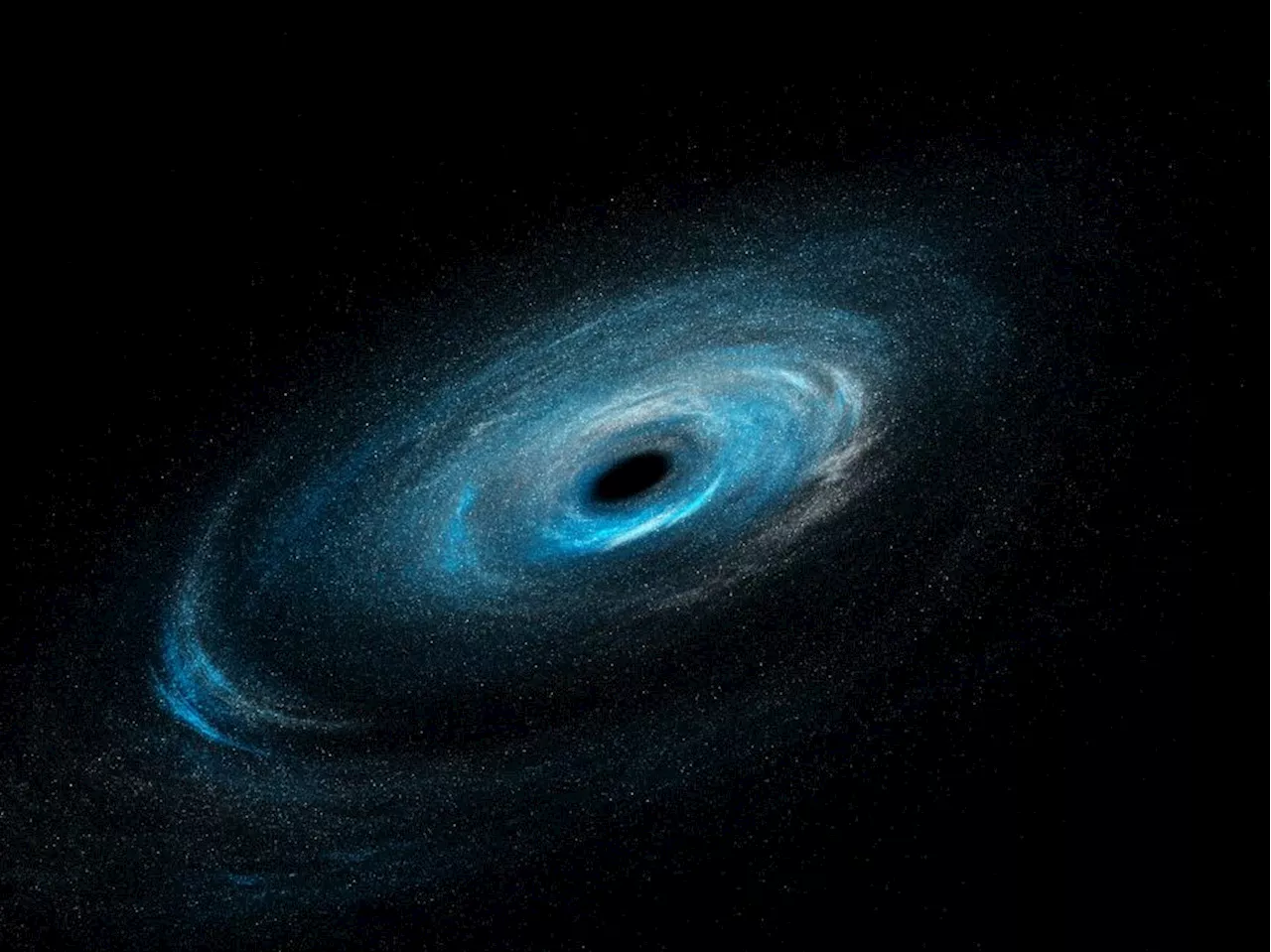A new study using the Sloan Digital Sky Survey reveals that supermassive black holes spin faster than predicted by galaxy mergers alone, suggesting a significant role for smooth accretion in their formation.
A recent survey of supermassive black holes reveals that their spin rates provide insights into their formation history. Two crucial numbers characterize a supermassive black hole: its mass and spin rate. While measuring mass is challenging, determining spin is even more difficult. Logan Fries, a PhD student at the University of Connecticut, emphasizes the importance of these measurements for understanding black hole evolution.
Fries and his colleagues in the Sloan Digital Sky Survey’s Reverberation Mapping Project undertook the arduous task of measuring the spin rates of black holes across cosmic history, studying them from today to as far back as seven billion years ago. The mapping project also made detailed observations of the accretion disks surrounding these black holes. Accretion disks are the areas nearest to the black hole where matter accumulates and heats up as it spirals inward. Measuring these regions is crucial because knowing the black hole's mass and the structure of its accretion disk provides data that allows scientists to calculate the spin rate. Astronomers typically estimate spin rate by observing how matter behaves as it falls into the black hole.The results of the SDSS Survey, measuring the mass of hundreds of black holes, surprised Fries. The spin rates indicated that these black holes formed not solely through galaxy mergers, as previously thought. Instead, they must have grown significantly from material falling in, smoothly increasing their mass and accelerating their rotation. Fries presented his findings at a recent meeting of the American Astronomical Society, stating that understanding black hole growth requires more precise measurements than previously available. This is a challenging endeavor, according to Fries' thesis advisor, Physics professor Jonathan Trump. The key lies in separating the black hole's spin from the spin of its surrounding accretion disk. This separation is achieved by examining the innermost region of the disk, where gas falls into the black hole's event horizon. A spinning black hole drags this innermost material along, creating observable differences in the measurements. Spectral measurements, which show subtle shifts in the spectra towards shorter wavelengths of light, provide crucial clues about the black hole's rotation rate. Fries refers to this approach as 'black hole archaeology,' as it seeks to understand how the mass of a black hole has grown over time. By examining the black hole's spin, scientists essentially examine its fossil record
BLACK HOLES GALAXIES SPIN FORMATION ACCRETION DISKS
United States Latest News, United States Headlines
Similar News:You can also read news stories similar to this one that we have collected from other news sources.
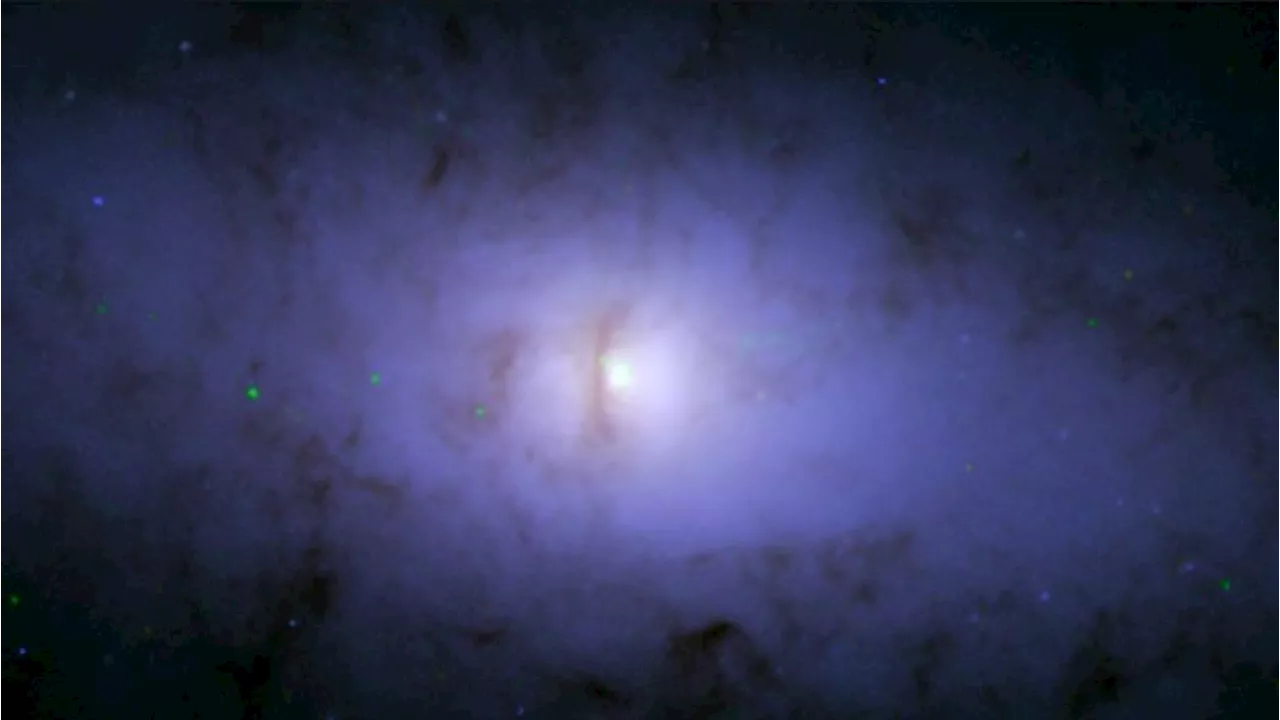 Astronomers Find a Black Hole Tipped Over on its SideSpace and astronomy news
Astronomers Find a Black Hole Tipped Over on its SideSpace and astronomy news
Read more »
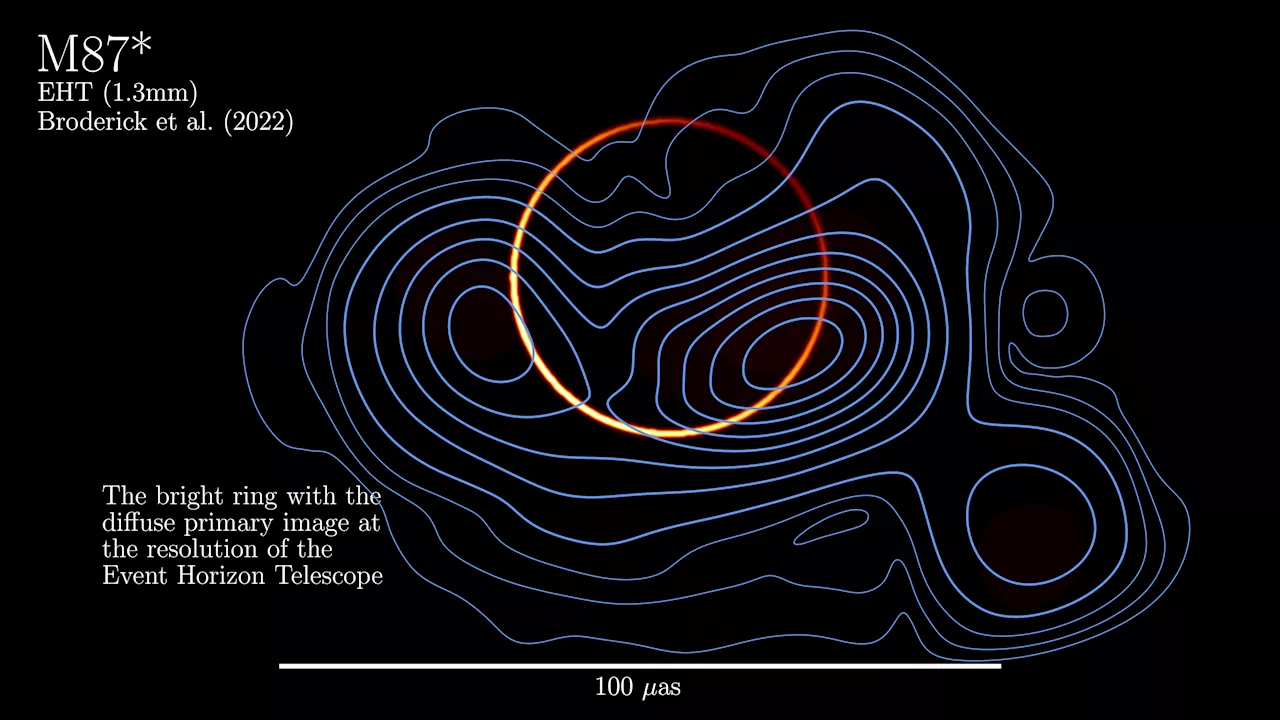 Astronomers Have Revealed a Black Hole's Photon Ring for the First TimeSpace and astronomy news
Astronomers Have Revealed a Black Hole's Photon Ring for the First TimeSpace and astronomy news
Read more »
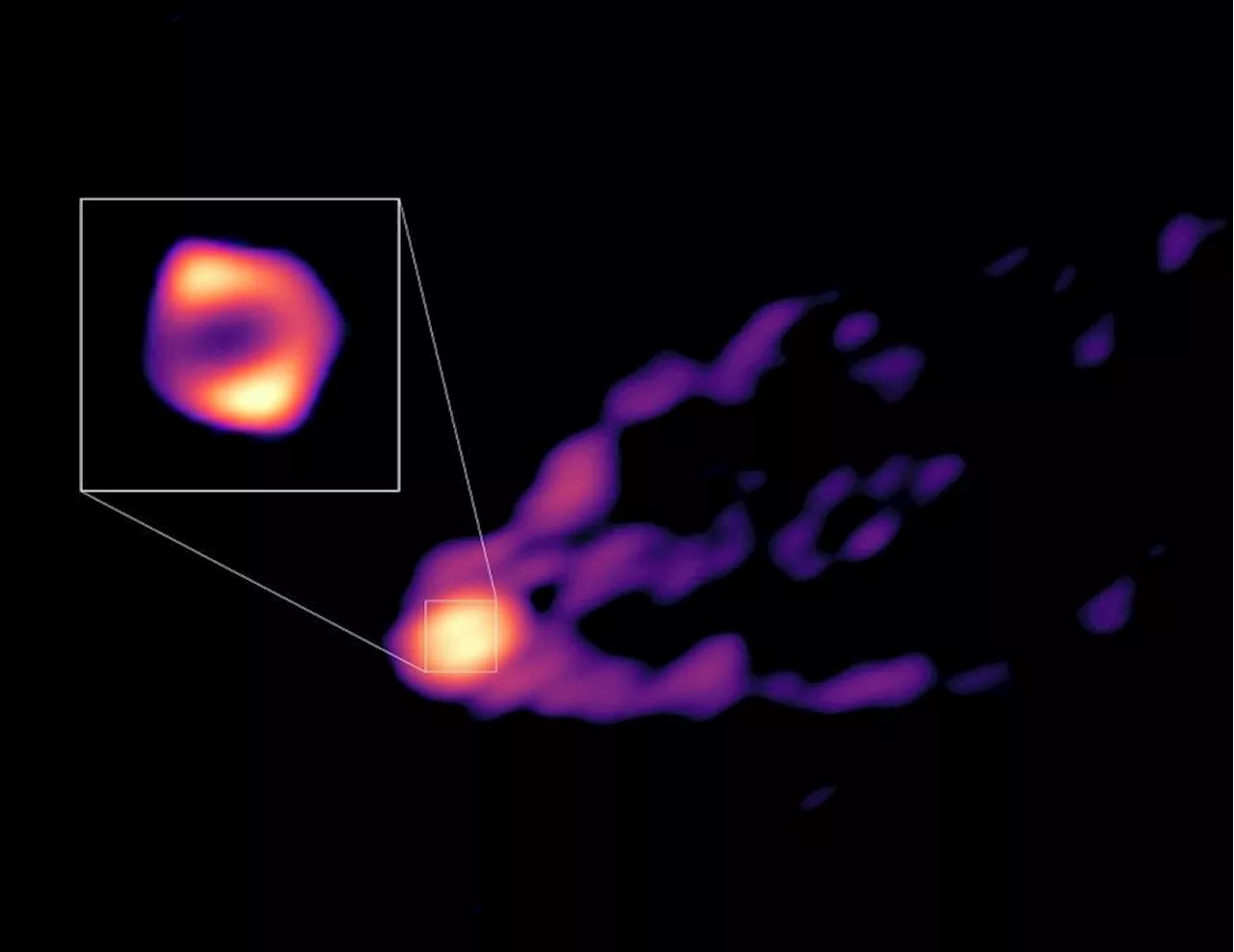 A Supermassive Black Hole and its Jet, All in a Single PictureAstronomers have released another picture showing the event horizon of the M87 black hole and the gigantic jet blasting out of it.
A Supermassive Black Hole and its Jet, All in a Single PictureAstronomers have released another picture showing the event horizon of the M87 black hole and the gigantic jet blasting out of it.
Read more »
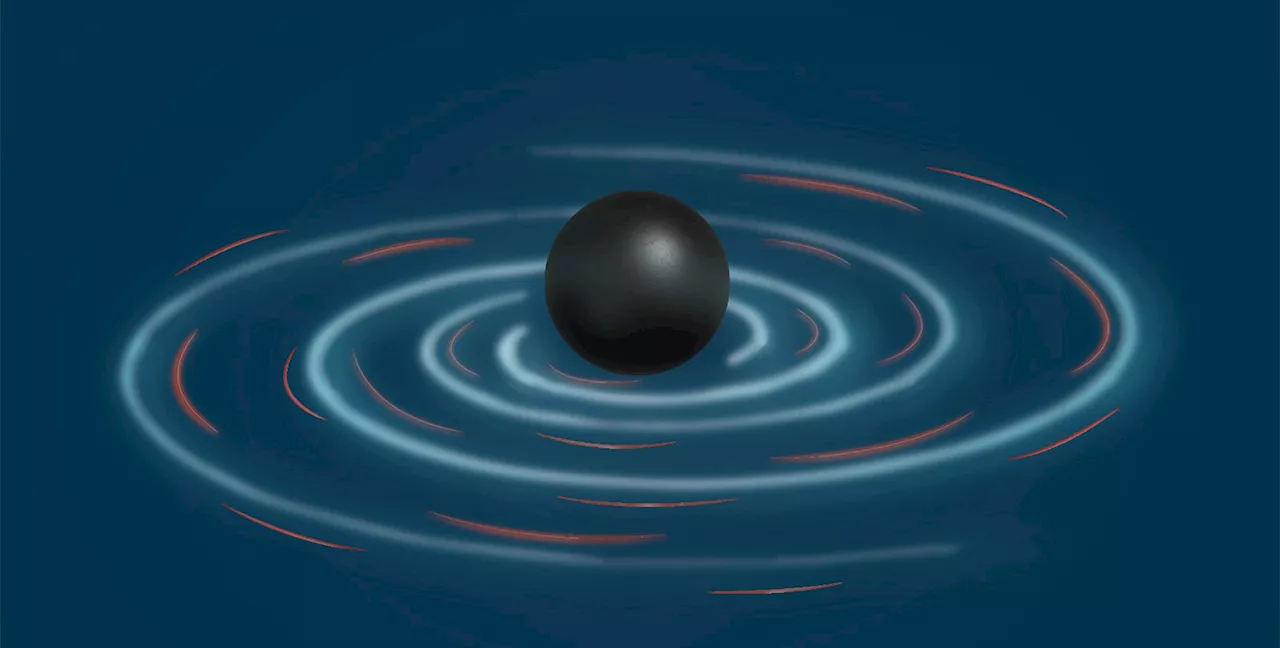 Quantum Correlations Could Solve the Black Hole Information ParadoxSpace and astronomy news
Quantum Correlations Could Solve the Black Hole Information ParadoxSpace and astronomy news
Read more »
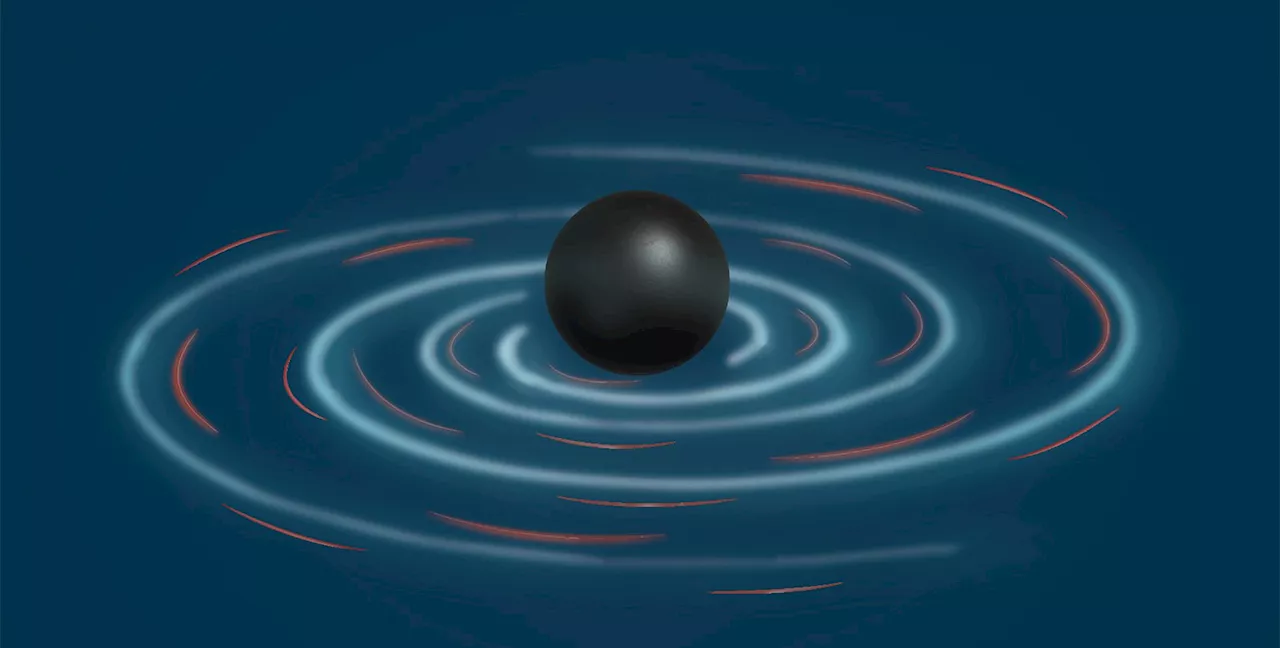 Quantum Connections in Spacetime May Resolve Black Hole Information ParadoxNew research suggests that quantum entanglement between aspects of spacetime could solve the long-standing black hole information paradox.
Quantum Connections in Spacetime May Resolve Black Hole Information ParadoxNew research suggests that quantum entanglement between aspects of spacetime could solve the long-standing black hole information paradox.
Read more »
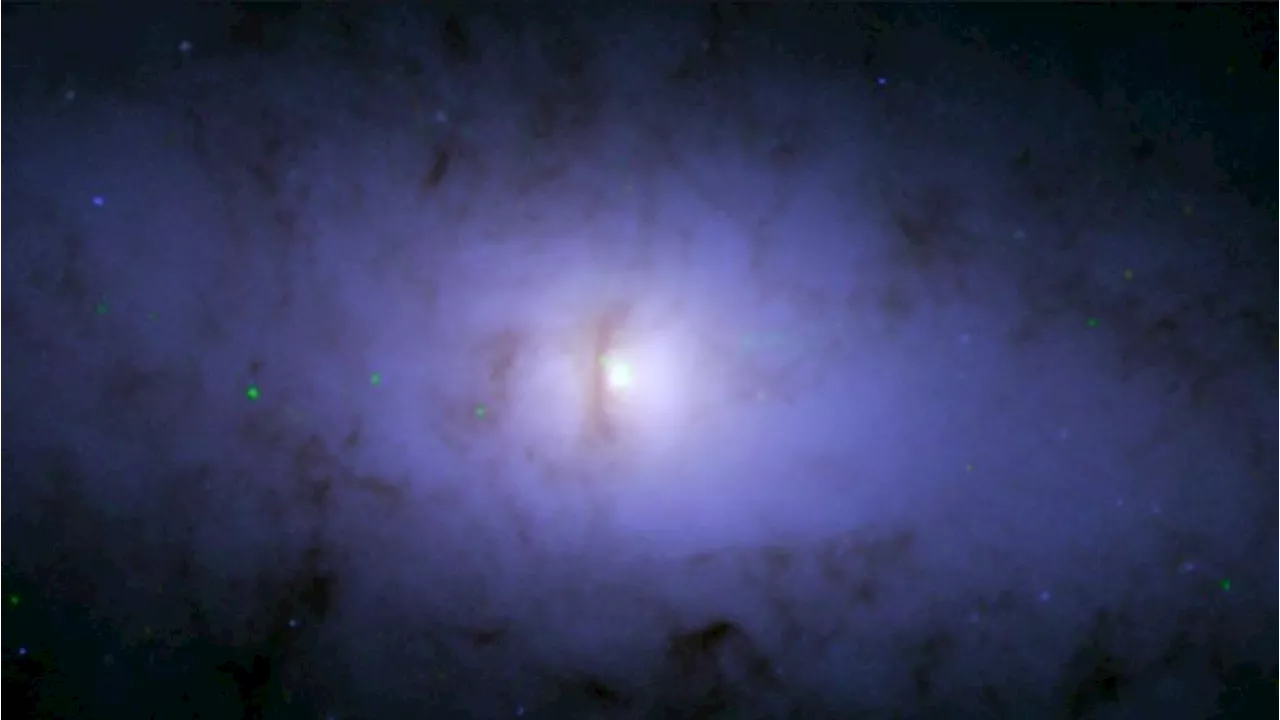 Black Hole in NGC 5084 Spins Out of AlignmentNASA researchers using a new X-ray detection technique discovered a galaxy, NGC 5084, with a black hole spinning perpendicular to the galaxy's disk.
Black Hole in NGC 5084 Spins Out of AlignmentNASA researchers using a new X-ray detection technique discovered a galaxy, NGC 5084, with a black hole spinning perpendicular to the galaxy's disk.
Read more »
